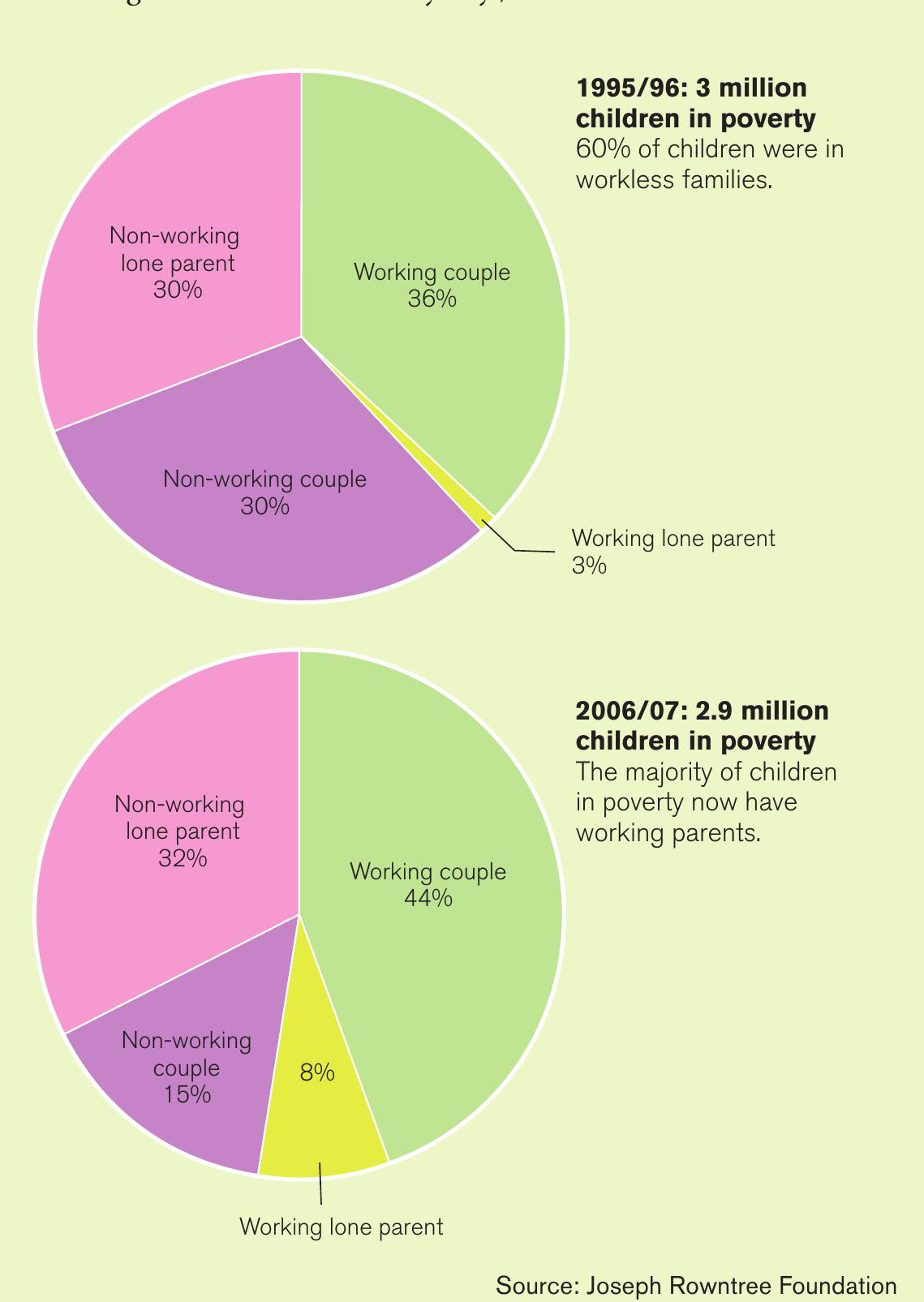
Apaper entitled ‘Ending Child Poverty in a Changing Economy’, published by the Joseph Rowntree Foundation in 2009, questions the government’s view that more employment for parents is the best way out of relative child poverty in the UK. Instead, it argues that the growth of low-paid, casual, shortterm jobs has meant that more than three quarters of all UK children living in poverty today actually have parents who are in work (Figure 1). Because of this fact, the report claims that 2.3 million children in the UK will still be in poverty in 2010, compared to the government’s estimate of 1.7 million.
The longitudinal Millennium Cohort Study of 15,000 UK families whose first child was born in the year 2000, headed by Professor Heather Joshi at the Institute of Education in London, also recently provided an intriguing snapshot of the lives of UK children. It reported that well-educated parents who delay having their first child until the mother is 30 years of age seem to offer the best benefits for children. Half of all parents in the study had smacked their child by the time the youngster was 5 years old, 60% reported shouting at their children ‘every day’, and 63% of all children lived in a ‘traditional’ family setting, with married parents, by the time they entered schooling at 5 years. Given concerns about childhood obesity in the UK, it is also interesting that few fathers and fewer mothers in the study played sport or any physically active games with their children every day (Figure 2).
Your organisation does not have access to this article.
Sign up today to give your students the edge they need to achieve their best grades with subject expertise
Subscribe




